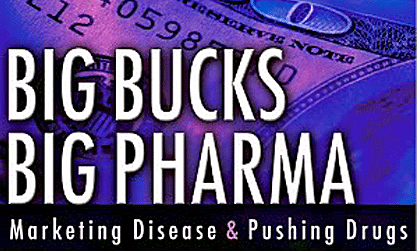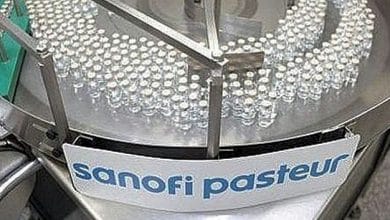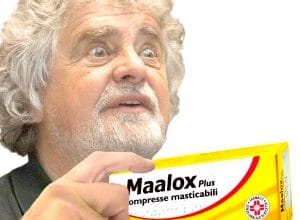
An example concerns i generic drugs, therefore no longer protected by patents. In Italy the percentage of these products on the total pharmaceutical expenditure is 14%, less than a third of the 50% achieved by the Netherlands and Germany. If the percentage of generics in Italy were aligned with the European average, the public coffers would save approx 1.1 billion euros/year.
Of Victor Agnoletto | June 3, 2015 | ECONOMY & LOBBY Il Fatto Quotidiano
“ The Republic protects health as a fundamental right of the individual and in the interest of the community, and guarantees free care to the indigent". Article 32 of the Constitution.
The Republic protects health as a fundamental right of the individual and in the interest of the community, and guarantees free care to the indigent". Article 32 of the Constitution.
Important statements, but which are not always respected because huge interests and extremely powerful lobbies move around health. The pharmaceutical industry ranks second in world markets in the distribution of dividends to its shareholders, second only to the military industry. Companies in the pharmaceutical and health sector spent in 2013 more than 487 million dollars in lobbying in the US and they funded the 2012 election campaigns with $260 million, of course in a bipartisan way to be protected in any case whoever was elected. At the same time they have used about 50 million dollars/year to influence the political power of the EU towards commercial and fiscal choices in their favor.
Some day ago various associations made a dramatic appeal to the Minister of Health: out of 30 thousand co-infected by viruses HIV/HCV (of AIDS and Hepatitis C) there are 8,000 who will progress towards cirrhosis and liver cancer and 376 who will risk dying in the next five years if they cannot be cured with the new drugs. Sofosbuvir is a new one hepatitis C drug, a disease that has one of the highest diffusion rates in the world in Italy. According to prof. Silvio Garattini, director of the Mario Negri Institute, in our country it is estimated that there are about 1.5 million people infected with Hepatitis C, including 50,000 in very serious conditions.
ago various associations made a dramatic appeal to the Minister of Health: out of 30 thousand co-infected by viruses HIV/HCV (of AIDS and Hepatitis C) there are 8,000 who will progress towards cirrhosis and liver cancer and 376 who will risk dying in the next five years if they cannot be cured with the new drugs. Sofosbuvir is a new one hepatitis C drug, a disease that has one of the highest diffusion rates in the world in Italy. According to prof. Silvio Garattini, director of the Mario Negri Institute, in our country it is estimated that there are about 1.5 million people infected with Hepatitis C, including 50,000 in very serious conditions.
The Gilead Sciences company that produces Sofosbuvir has set the price in the United States of almost 1,000 dollars for each tablet for a total cost per cycle of therapy of about 84,000 dollars per person, equal to 68,000 euros. A stratospheric price, not at all justified neither from research costs, nor from the cost of the active ingredient which is around 12,000 euros per kg; with this quantity, 30 therapeutic cycles can be packaged, reaching a revenue of over 2 million euros! We are faced with real speculation: in Egypt the same drug costs 700 euros per cycle and in India 300 dollars, approximately 250 euros: 270 times less than the price in the western market!
THE in Italy the AIFA, the Italian Medicines Agency, has established in 74,258 euros the price per cycle to the public and about 45,000 the hospital price. The government has allocated 500 million for next year. There will be just over 10,000 people who will be able to be treated free of charge, selected with strict criteria that exclude tens of thousands of other patients, including many with HIV/HCV co-infection who will eventually be able to be treated only at their own expense.
in Italy the AIFA, the Italian Medicines Agency, has established in 74,258 euros the price per cycle to the public and about 45,000 the hospital price. The government has allocated 500 million for next year. There will be just over 10,000 people who will be able to be treated free of charge, selected with strict criteria that exclude tens of thousands of other patients, including many with HIV/HCV co-infection who will eventually be able to be treated only at their own expense.
Our national history has seen health ministers go to jail in the past and public health executives hide bars of gold at home. The pharmaceutical industry still exercises enormous power over the political and medical world of our house.
Among the 90 doctors and researchers who drafted the new guidelines for AIDS therapies in 2011, well two-thirds had some form of partnership with pharmaceutical companies involved in the treatment of the disease: Abbot, Britstol-Meyer-Squibb, Gilead, Glaxo-SmithKline, Merck Sharp&Dhome, Pfizer just to name the best known. Defining the guidelines means establishing the market for the various drugs and consequently the profits of the companies.
A second example concerns i generic drugs, therefore no longer protected by patents. In Italy the percentage of these products on the total pharmaceutical expenditure is 14%, less than a third of the 50% achieved by the Netherlands and Germany. According to a recent research by Nomisma, the main reason would lie precisely in the doctors' choice not to prescribe generics, yielding to pressure from pharmaceutical lobbies. The same study explains that if the percentage of generics in Italy were aligned with the European average, public coffers would save approx 1.1 billion euros/year.
In the current dramatic economic situation, the connivance between political power and Big Pharma has as a consequence the cancellation of the rights provided for by the Constitution: not everyone will be able to get treatment, many will not have access to drugs and the possibility of recovering or improving the quality of one's health will depend more and more on the individual wallet.
Ed.: We greatly admire the passion that Dr. Agnoletto puts into supporting his theses, e we have no particular sympathy for Big Pharma, but if it states inaccurate or outdated things we are obliged to underline it. Also pointing out that if he cites incorrect data, the whole scaffolding of his speech could fall.
The lowest price of a generic drug becomes the reference price for all drugs containing that same active ingredient. The difference between the reference price and the branded drug is the responsibility of the citizen. The public coffers don't lose a cent!
According to the EFPIA (European Federation of Pharmaceutical Industries and Associations) lo share of generics in the Italian market is 41.5%. The lowest market percentages are instead recorded in Switzerland (11.5%), Holland (12.7%), Belgium (14.6%), Greece (15.1%).
According to OsMed in Italy the consumption of expired patent drugs is 70.4% with a gross expenditure of 51.1% of the total expenditure, while generics are at 28,8%, calculated on the total expenditure for expired patent medicines.
Related news: The generic drug? He enjoys excellent health and now the "supers" are coming





